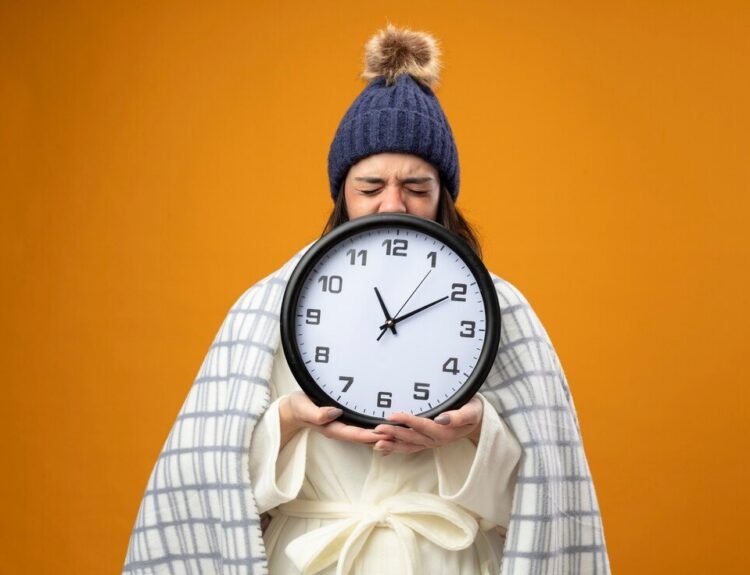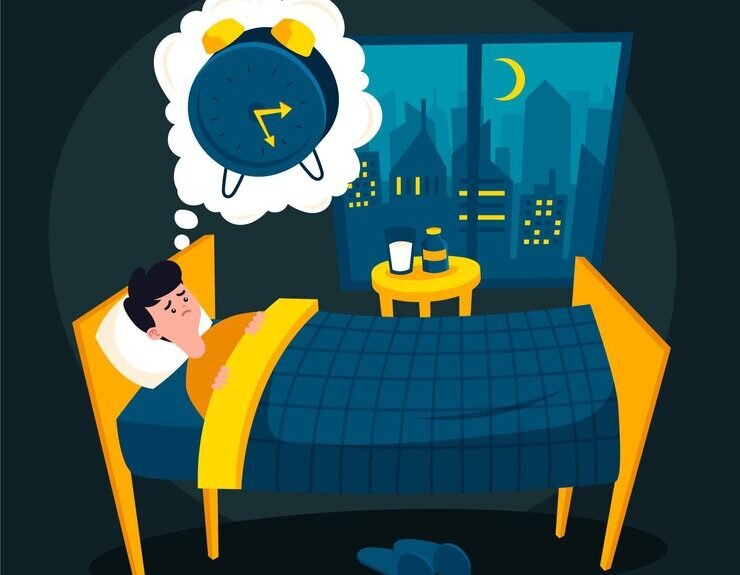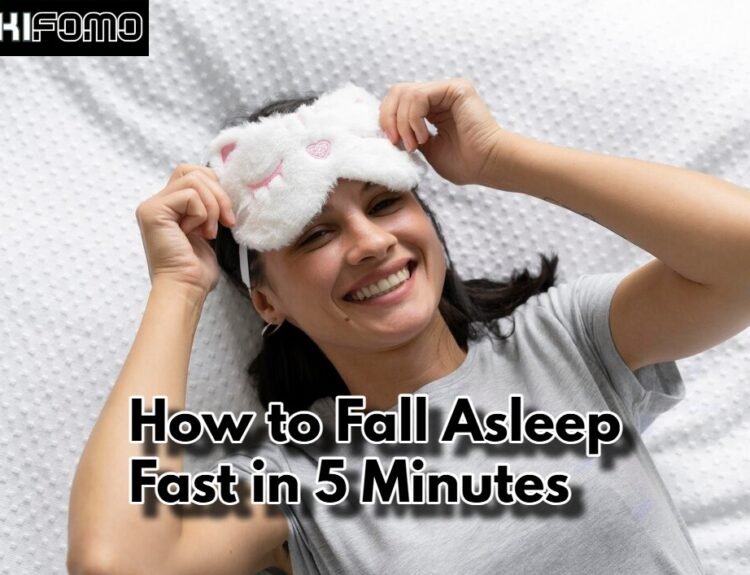Sleeping well is crucial for both your physical and emotional health. But sometimes, no matter how tired you feel, sleep just doesn’t come easily. If you often find yourself tossing and turning, struggling to fall asleep, you’re not alone. Fortunately, there are several strategies you can use to help you feel sleepy fast and get the deep, restful sleep your body craves.
In this article, we’ll explore practical tips to help you fall asleep faster, improve your sleep quality, and wake up feeling more refreshed. Whether you suffer from occasional insomnia or simply want to optimize your sleep routine, these methods will guide you to better sleep hygiene and more restful nights.
Why Is Falling Asleep Fast Important?
The ability to fall asleep quickly is not just a convenience it’s a crucial aspect of overall health. Poor sleep or an inability to fall asleep on time can affect everything from memory and mood to immunity and metabolism. Studies show that insufficient sleep can increase the risk of cardiovascular disease, type 2 diabetes, obesity, and mental health issues like anxiety and depression.
ALSO READ: Fall Asleep Fast As A Teenager: 15 Proven Tips to Supercharge Your Sleep and Wake Up Refreshed!
Most adults need between 7 and 9 hours of sleep per night, but the key isn’t just the quantity—it’s also the quality. Falling asleep quickly and staying asleep through the night is essential for maintaining the proper physical and mental health balance. If you’re someone who frequently struggles with sleep, making small changes to your routine may help you fall asleep faster.
How to Be Sleepy Fast: 12 Expert-Recommended Tips
To help you fall asleep quickly, we’ve put together some scientifically-backed tips and techniques that promote relaxation and support sleep health. Whether you’re preparing for bed or trying to get back to sleep after waking up in the middle of the night, these strategies will guide you toward better rest.
1. Lower the Room Temperature

A hot room can prevent your body from cooling down naturally, which is essential for sleep. The ideal temperature for sleep is between 60°F and 67°F (15.6°C to 19.4°C). A cooler environment encourages your body to shed heat, signaling that it’s time to rest. You might also try taking a warm bath about an hour before bed—this has been shown to speed up the body’s cooling process and help you feel sleepy fast.
2. Practice the 4-7-8 Breathing Technique

If you find yourself lying awake in bed, stressed about getting to sleep, try the 4-7-8 breathing method. This simple yet effective technique can calm your nervous system and help you unwind quickly.
How to do the 4-7-8 Breathing Method:
- Put your tongue tip behind your front upper teeth.
- Exhale completely through your mouth, making a “whoosh” sound.
- Close your mouth and take a silent four-count breath via your nose.
- Hold your breath for a count of 7.
- Make a “whoosh” sound as you exhale fully through your mouth for eight counts.
- Repeat for at least three more cycles.
This technique has been shown to promote relaxation, reduce anxiety, and prepare your body for sleep, making it easier to fall asleep fast.
3. Stick to a Consistent Sleep Schedule

Setting a regular sleep schedule is one of the most effective ways to train your body to fall asleep faster. Your body’s circadian rhythm is a natural internal clock that regulates sleep and wakefulness. By going to bed and waking up at the same time every day, you can strengthen your circadian rhythm, making it easier to fall asleep when you need to.
Additionally, give yourself 30-45 minutes to wind down before bedtime. Engage in calming activities like reading, meditation, or listening to soft music—these can signal to your brain that it’s time to sleep.
4. Experience Natural Light Exposure During the Day

Your body’s internal clock depends on the natural light-dark cycle to regulate sleep patterns. Research suggests that exposure to natural sunlight during the day can help you feel sleepy fast by improving your circadian rhythm. Spending time outside in the daylight can also boost evening sleep quality, as it encourages melatonin production when night falls.
However, it’s important to avoid bright artificial lights in the evening, as they can interfere with melatonin production. Consider using blackout curtains to block out any external light and create a darker, more sleep-friendly environment at night.
5. Avoid Screens and Electronics Before Bed

The blue light emitted by phones, tablets, and computers can disrupt your body’s production of melatonin, the hormone that signals sleep. Avoid using electronics for at least 1 hour before bed to give your brain time to relax and prepare for sleep.
If you need to use your phone in the evening, consider using blue-light blocking glasses or turning on “night mode” to minimize the effects of blue light.
6. Try Relaxation Techniques Like Yoga and Meditation

Engaging in a relaxation practice like yoga or meditation before bed can significantly improve sleep quality and help you feel sleepy fast. Both yoga and meditation focus on calming the mind, reducing stress, and preparing the body for rest.
Simple mindfulness exercises or a few gentle yoga stretches can help release tension in the body and relax your nervous system, making it easier to fall asleep quickly.
7. Remove Clocks and Stop Clock-Watching

It’s common for people with sleep issues to check the clock constantly when they wake up in the middle of the night. This behavior, known as clock-watching, can increase anxiety and make it even harder to fall back asleep. If you wake up in the night, resist the urge to look at the clock.
To avoid this, try removing clocks from your room entirely or turning them around so you can’t see the time. Reducing stress and anxiety around sleep can help you feel sleepy faster and fall back asleep more easily.
8. Avoid Napping During the Day

Although naps can be beneficial for recharging during the day, excessive daytime napping can interfere with your ability to fall asleep at night. If you must nap, limit your nap to 20-30 minutes and avoid napping late in the afternoon or evening. This will ensure that you’re not disrupting your natural sleep-wake cycle and help you feel sleepy fast when bedtime comes.
9. Watch What You Eat Before Bed

Eating large or heavy meals before bed can cause discomfort and make it harder to fall asleep quickly. Aim to finish your last meal at least 2-3 hours before bed. Avoid spicy, acidic, or high-fat foods that could upset your stomach.
If you’re still hungry, consider a light, sleep-friendly snack like a small handful of nuts, a banana, or a cup of warm herbal tea.
10. Listen to Relaxing Music

Music has the power to relax both the body and the mind. Listening to calming, instrumental music before bed can reduce stress, lower heart rates, and help you wind down. Research has shown that listening to soothing tunes can improve sleep onset and overall sleep quality.
If music isn’t your thing, you can also use earplugs to block out noise and create a peaceful, quiet environment for sleep.
11. Try Aromatherapy

Essential oils, such as lavender, chamomile, and peppermint, have been shown to help promote relaxation and improve sleep quality. Consider using an essential oil diffuser in your bedroom or applying a few drops of calming oil to your pillow to create a soothing atmosphere.
Aromatherapy may help reduce anxiety and stress, making it easier for you to feel sleepy fast.
12. Experiment with Sleep Supplements (With Caution)

Certain sleep-enhancing supplements may help you fall asleep faster, although they should only be used with caution and under a doctor’s advice. The following are a few of the most popular sleep aids:
- Melatonin: A hormone that regulates the sleep-wake cycle.
- Magnesium: Known to relax muscles and calm the nervous system.
- 5-HTP: A precursor to serotonin, which can support relaxation.
- L-theanine: An amino acid which promotes relaxation without making you sleepy.
Always get advice from your doctor before using any new supplements.
Final Thoughts: How to Be Sleepy Fast and Sleep Better
When it comes to falling asleep quickly, creating the right conditions for rest is essential. A consistent bedtime routine, a cool and comfortable room, and relaxation techniques can significantly improve your ability to fall asleep faster. By making small adjustments to your habits and environment, you can train your body to sleep more efficiently and wake up feeling more refreshed.
By using these tips, you’ll be well on your way to falling asleep faster, enjoying more restful sleep, and waking up ready to take on the day.
Love what you read? Join our community! Like, share, and follow Wikifomo for more exciting insights. Your support encourages our passion! Thank You.
Frequently Asked Questions
1. Why am I tired but can’t sleep?
2. What are some tips to fall asleep faster?
2)Practice deep breathing exercises like the 4-7-8 method.
3)Limit screen time before bed.
4)Create a consistent sleep schedule.
5)Avoid large meals and caffeine late in the day.


